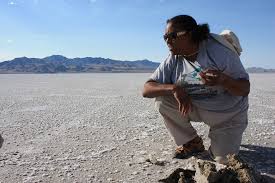Astrobiologists: Exploring the Search for Extraterrestrial Life
Astrobiologists are scientists who study the possibility of life beyond Earth. They explore the conditions that could support life in other parts of the universe, such as on other planets, moons, or even in outer space.
These researchers come from diverse backgrounds, including biology, chemistry, astronomy, and geology. They use a variety of scientific methods and technologies to investigate the potential for life in extreme environments and under different conditions.
One of the key areas of focus for astrobiologists is the search for exoplanets – planets outside our solar system that may have conditions suitable for life. By studying these distant worlds and their atmospheres, astrobiologists aim to identify signs of habitability and potential biosignatures.
Astrobiologists also explore extreme environments on Earth that mimic conditions found elsewhere in the universe, such as deep-sea hydrothermal vents or high-altitude deserts. By studying life forms that thrive in these harsh environments, scientists can gain insights into how life could exist in similar conditions on other planets.
Ultimately, astrobiologists are driven by a fundamental question: are we alone in the universe? Through their research and exploration, they seek to uncover clues that could lead to the discovery of extraterrestrial life and expand our understanding of the cosmos.
Exploring Astrobiology: Careers, Opportunities, and Pioneers in the Field
- Does NASA need astrobiologists?
- Do astrobiologists work at NASA?
- Is astrobiology a good career in India?
- Is an astrobiologist a real job?
- Who is the father of astrobiology?
Does NASA need astrobiologists?
The question of whether NASA needs astrobiologists is a common one among those interested in space exploration and the search for extraterrestrial life. Astrobiologists play a crucial role at NASA by contributing their expertise in studying the potential for life beyond Earth. Their multidisciplinary approach to understanding the conditions that could support life in the universe is essential for missions exploring exoplanets, moons, and other celestial bodies. By collaborating with astrobiologists, NASA can better assess the habitability of distant worlds and identify targets for future space exploration efforts. Overall, the work of astrobiologists is instrumental in advancing our knowledge of astrobiology and informing NASA’s quest to unravel the mysteries of the cosmos.
Do astrobiologists work at NASA?
The question of whether astrobiologists work at NASA is a common one among those interested in the field of astrobiology. While NASA does employ astrobiologists as part of its diverse team of scientists, it is important to note that astrobiology is a multidisciplinary field that involves researchers from various scientific backgrounds and institutions around the world. Astrobiologists can be found working in universities, research institutions, government agencies like NASA, and even private companies dedicated to space exploration and the search for extraterrestrial life. NASA’s involvement in astrobiology research has been significant, with missions like the Mars rovers and the search for habitable exoplanets contributing to our understanding of the potential for life beyond Earth.
Is astrobiology a good career in India?
The question of whether astrobiology is a viable career in India is a common one among aspiring scientists and researchers. In recent years, the field of astrobiology has been gaining recognition and interest in India, with several research institutions and academic programmes focusing on this interdisciplinary science. While opportunities for astrobiologists in India may be more limited compared to countries with well-established space agencies and research centres, the growing emphasis on space exploration and astrobiology research in India suggests a promising future for those pursuing a career in this field. With increasing collaborations with international space agencies and advancements in technology, astrobiology holds potential for meaningful contributions to scientific discovery and innovation within the Indian scientific community.
Is an astrobiologist a real job?
The question “Is an astrobiologist a real job?” is a common inquiry among those curious about the field of astrobiology. The answer is a resounding yes – astrobiology is indeed a legitimate and rapidly growing scientific discipline. Astrobiologists play a crucial role in exploring the possibility of life beyond Earth, studying the conditions that could support life in various parts of the universe. These dedicated scientists come from diverse backgrounds, including biology, chemistry, astronomy, and geology, and work tirelessly to unravel the mysteries of the cosmos and search for signs of extraterrestrial life.
Who is the father of astrobiology?
One frequently asked question in the field of astrobiology is, “Who is the father of astrobiology?” While the concept of astrobiology as an interdisciplinary scientific field is relatively modern, many consider Russian scientist Gavriil Adrianovich Tikhov as one of the pioneers in this area. Tikhov was a biochemist and astronomer who proposed the idea of panspermia – the theory that life exists throughout the universe and can be distributed by space dust, meteoroids, or comets. His groundbreaking work laid the foundation for the study of astrobiology and inspired future generations of scientists to explore the possibilities of life beyond Earth.

No Responses